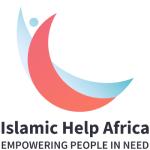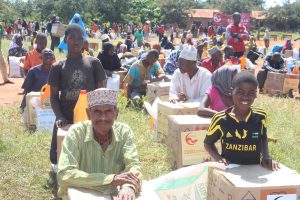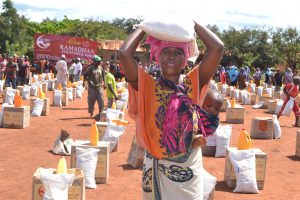Okulların İmarı
Çocuklar okula dönsün – geleceğe yatırım Pangani İlçesinde 34 ilkokul vardır ve toplam öğrenci sayısı 5789 erkek ve 5736 kız öğrenci olmak üzere toplam 11525tir. İlkokul b,inaları, tuvalet binalarından, lavabolardan, öğretmen ofislerinden (39 ilkokul öğretmeni halihazırda bir ofise sahip değildir) yoksundur ve binaların çatıları akmaktadır. Pangani ilçesindeki 34 okuldan yanlızca 3ünün tuvalet binası yoktur, sadece 4 okulun suyu ve 3 okulun elektriği vardır. Genel olarak bir sınıfta 134 çocuk birarada ders görmekte ve bu durum konsantrasyonlarını azaltarak potansiyellerine ulaşmalrını engellemektedir. Çocukların çoğu ortaokula gelmeden okulu bırakmaktadır.
Bunun ötesinde öğretmenlere gerekli eğitimleri vermek de çok önemlidir – çocukların %67si İngilizce sınavlarından kalmaktadır. Islamic Help öğretmenlerin kapasitesini artırmak ve özellikle İngilizce ve IT alanlarında yardım sağlamak için planlar yapmaktadır.
Islamic Help Eğitim projesi varolan okulları imar etmekte ve aşağıdaki hizmetleri sunmaktadır.:
- Tuvalet ve lavabolar inşa etmek
- Çatı ve zeminleri onarmak
- Yatılı öğrenciler için güneş enerji panelleri kurmak
- Yağmur suyu hasadı ve su tankları
- Okul bahçeleri kurmak
- Kırtasiye ve sineklik yardımı yapmak.
Islamic Help Pangani’de 230 öğrencili Mwembeni okulunu yenilemiştir ve ilçedeki diğer okulları imar etmek için bağışları beklemektedir.
Cordoba Kız Lisesi
Topluluk çalışanları liderliğinde ve deneyimli eğitmenlerin desteğiyle Cordoba Kız Lisesi Islami değerler ışığında en yüksek eğitim standartlarına ulaşmayı hedeflemektedir. Öğrencilerimize eşşsiz fırsatlar ve deneyimler sunarak ruhsal, zihinsel, ahlaki, sosyal ve fiziksel gelişimlerine katkıda bulunmak hedefimizdir. Eğitim modeli olarak alanında lider İslami eğitmenler tarafından Amerika’da geliştirilmiş olan Tarbiyyah modelini benimsiyoruz. Tarbiyyah projesi modern Islami eğitimi revize etmek ve Islami eğitimi tekrar bütüncül kılmak üzere tasarlanmış bir vizyon, çerçeve ve programlar bütünüdür.

















